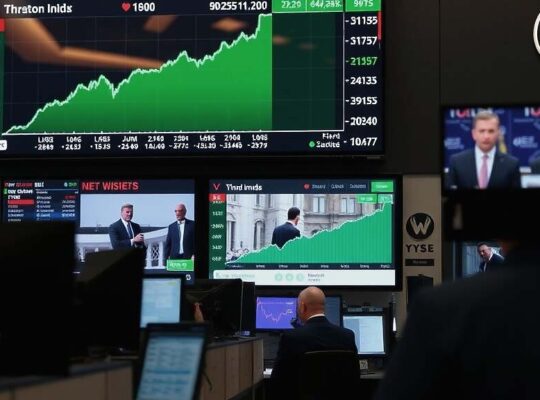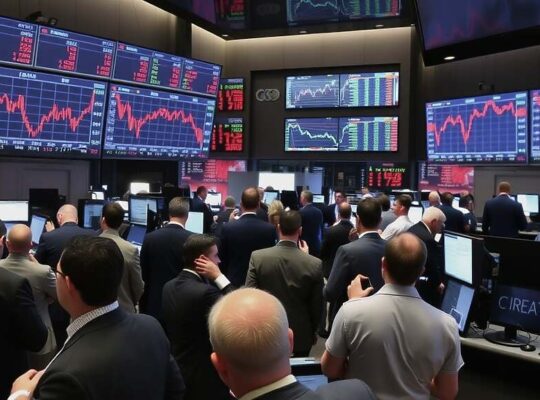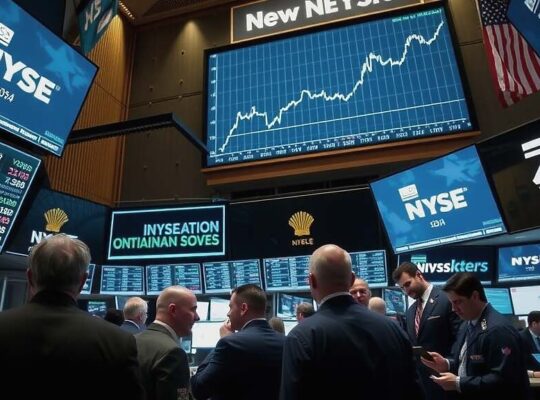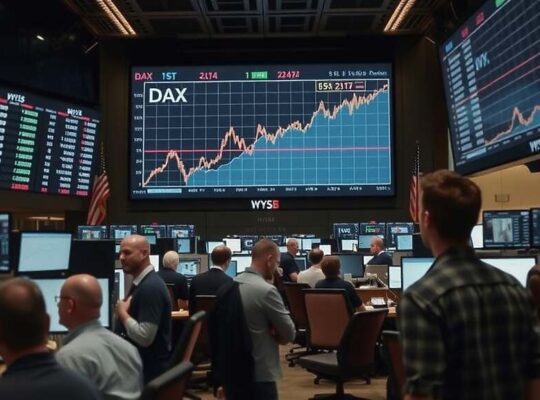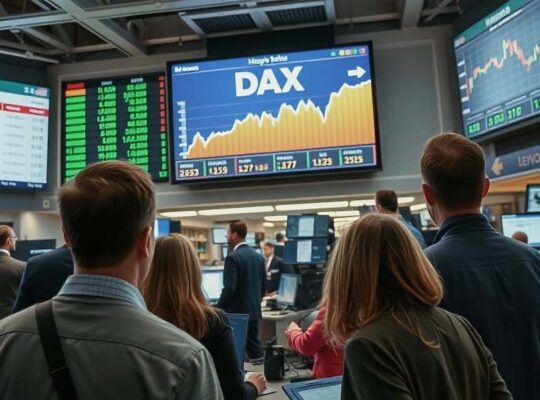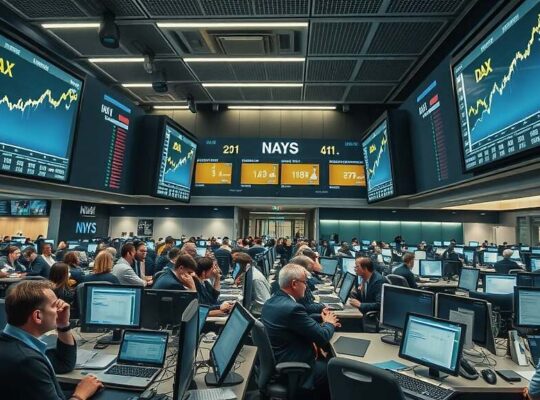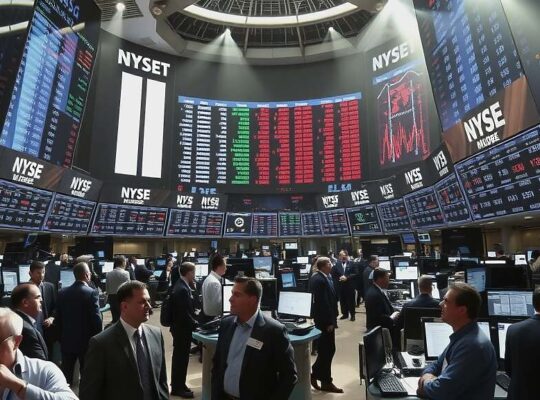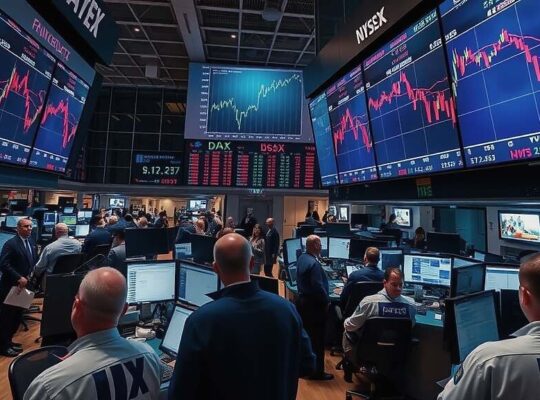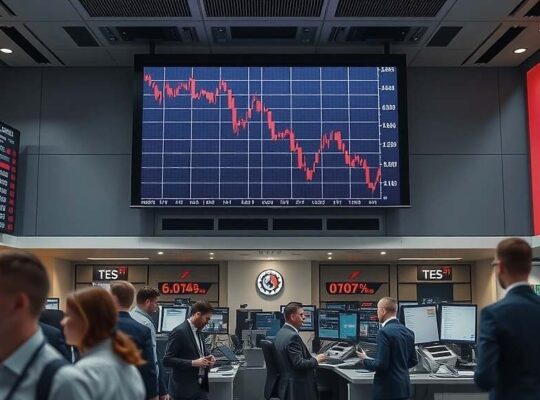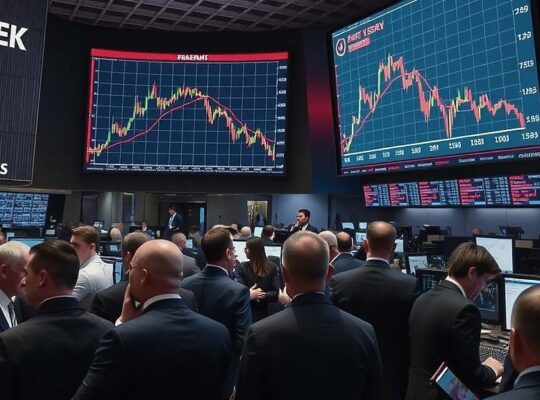European Markets Shiver as DAX Retreats Amid Geopolitical Uncertainty
Frankfurt – The DAX index experienced a notable decline on Tuesday, closing at 24,237 points, a decrease of 0.6% compared to the previous day’s close. The retreat reflects growing investor apprehension surrounding escalating global tensions and concerns about the resilience of the European economy. Throughout the trading day, the index struggled to gain traction, remaining mired in negative territory despite an initially sluggish start.
Market analysts attribute the downturn to a pervasive sense of caution amongst investors who are actively choosing to remain on the sidelines. Andreas Lipkow, a leading market commentator, highlighted the vulnerability of European equities to a confluence of potential risks. “The recent upward movement in German stocks was primarily driven by the performance of US equities, a situation unlikely to be sustainable” Lipkow stated. He specifically pointed to the risk of a significant escalation of the trade conflict between China and the United States, alongside a reportedly underwhelming earnings season for European companies, as critical factors weighing on investor sentiment. “There’s a distinct lack of a solid economic foundation underpinning the market’s recent gains and that’s something that risks catching up with it.
Within the Frankfurt Stock Exchange, Zalando and Heidelberg Materials briefly topped the list, while Continental, Siemens, Brenntag and Siemens Energy languished at the bottom, signaling divergent performance across different sectors. The latter’s struggles, in particular, may underscore persistent concerns regarding industrial efficiency and cost management.
Adding to the market’s anxiety, natural gas prices continued their downward trend, with a megawatt-hour for November delivery costing €32, a decrease of 1% compared to the previous day. While this translates to a potential consumer price of approximately 8-9 cents per kilowatt-hour, the sustained downward pressure on energy prices raises questions about the broader economic health and potential strain on energy providers’ profitability.
Furthermore, a sharp drop in oil prices, with Brent crude falling to $61.90 a barrel – a decrease of 2.2% – amplified the sense of economic fragility. This significant decline, while potentially easing inflationary pressure in the short term, could also signal reduced investment in the energy sector and potential long-term supply chain vulnerabilities.
The euro experienced a slight uptick, trading at $1.1588, suggesting a marginal increase in investor confidence towards the Eurozone. However, this limited gain did little to offset the overall cautious mood pervading the European markets, leaving analysts skeptical about a sustained recovery without a tangible shift in the underlying geopolitical and economic headwinds. The situation underscores the need for policymakers to proactively address the looming risks and reinforce the structural foundations of the European economy.



